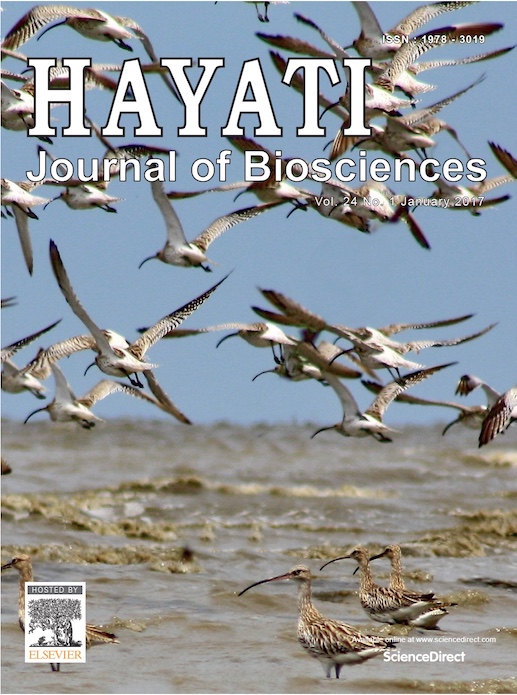Morphological and Molecular Diversity of Aspergillus From Corn Grain Used as Livestock Feed
Abstract
The study of Aspergillus from corn grains used as livestock feed is important to ensure the safety of the grains as the occurrence of Aspergillus in the corn grain can give an indication of mycotoxin being produced. Morphological and molecular identifications were applied to identify Aspergillus isolated from corn grains used as livestock feed. Morphologically, six species were tentatively identified, namely Aspergillus niger (Groups I and II), Aspergillus flavus, Aspergillus oryzae, Aspergillus fumigatus, Aspergillus clavatus and Aspergillus terreus. Isolates of A. niger was divided into two groups based on slight differences of their colony appearances. Molecular identification using internal transcribed spacer and β-tubulin sequences supported morphological identification except isolates for A. niger Group II isolates, which were molecularly identified as Aspergillus tubingensis. Neighbour-joining phylogenetic tree showed that isolates from the same species were grouped in the same clade. The present study showed that diverse species of Aspergillus are prevalent in corn grain used as livestock feed. It is also necessary to correctly identify the Aspergillus species to employ correct treatment of contaminated corn grains. The occurrence of well-known toxigenic species such as A. niger, A. flavus and A. fumigatus suggested the possible risk of mycotoxin contamination of the corn grain.Downloads
HAYATI J Biosci is an open access journal and the article's license is CC-BY-NC. This license lets others distribute, remix, tweak, and build upon author's work, as long as they credit the original creation. Authors retain copyright and grant the journal/publisher non exclusive publishing rights with the work simultaneously licensed under a https://creativecommons.org/

























.png) IPB University
IPB University Department of Biology
Department of Biology The Indonesian Biological Society
The Indonesian Biological Society 

